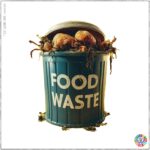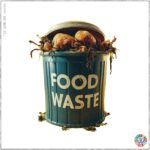GOAL 12: Responsible Consumption and Production

The world’s population currently consumes more resources than ecosystems can provide. For social and economic development to take place within the carrying capacity of ecosystems, the way our society produces and consumes goods must be fundamentally changed. Goal 12 calls for the environmentally sound management of chemicals and all wastes. Waste generation should be significantly reduced through measures such as recycling. Food waste is to be halved and companies are to be encouraged to adopt sustainable business practices. Another focus is on promoting sustainability criteria in public procurement.
What is to be achieved?
- Implement the ten-year programme framework for sustainable consumption and production patterns, with all countries, led by developed countries, acting, taking into account the level of development and capacity of developing countries.
- Achieve sustainable management and efficient use of natural resources by 2030.
- Halve global food waste per capita at retail and consumer levels by 2030 and reduce food losses along the production and supply chain, including post-harvest losses.
- By 2020, achieve environmentally sound management of chemicals and all wastes throughout their life cycle, in accordance with agreed international frameworks, and significantly reduce their release into air, water and soil to minimise their adverse impacts on human health and the environment.
- By 2030, significantly reduce waste generation through prevention, reduction, recycling, and reuse.
- Encourage companies, especially large and transnational companies, to adopt sustainable practices and include sustainability information in their reporting.
- Promote sustainable practices in public procurement, in line with national policies and priorities.
- By 2030, ensure that people everywhere have relevant information and awareness about sustainable development and living in harmony with nature.
How is the goal to be achieved?
- Support developing countries in strengthening their scientific and technological capacity to transition to more sustainable consumption and production patterns.
- Develop and apply tools to monitor the impact of sustainable tourism, which creates jobs and promotes local culture and products, on sustainable development.
- Rationalise inefficient fossil fuel subsidies that encourage wasteful consumption by removing market distortions in line with national circumstances, including by restructuring taxation and phasing out these harmful subsidies to take account of their environmental impact, taking full account of the specific needs and circumstances of developing countries and minimising the potential adverse impacts on their development in a manner that is protective of the poor and affected communities.




